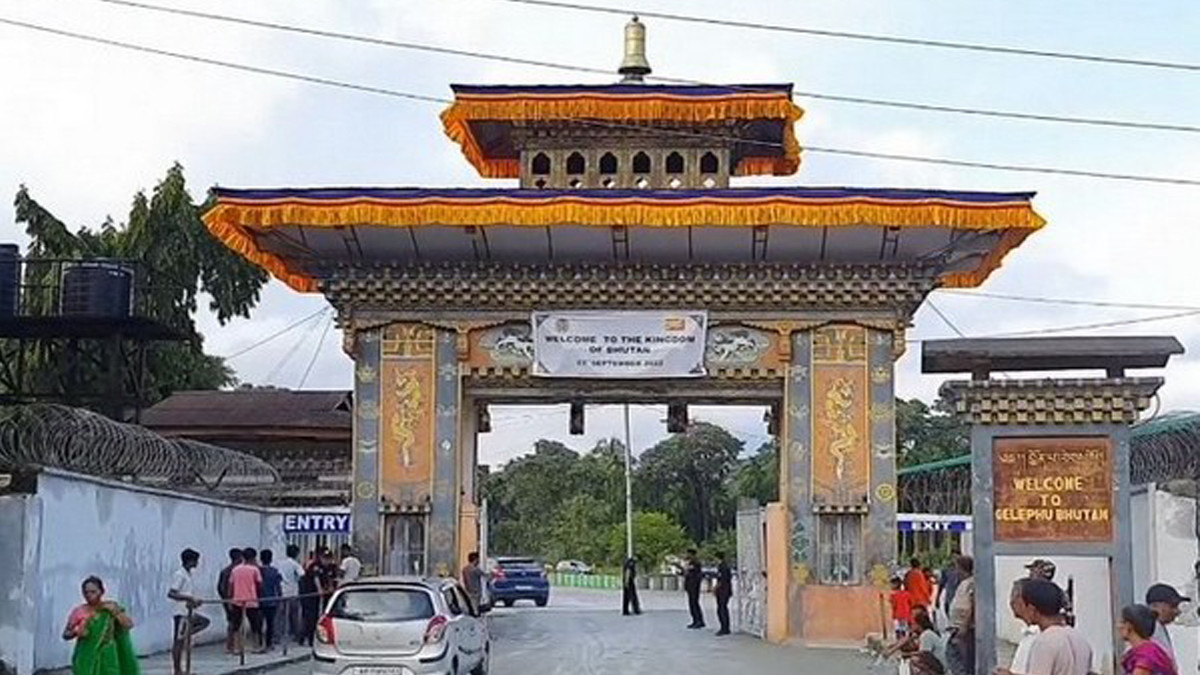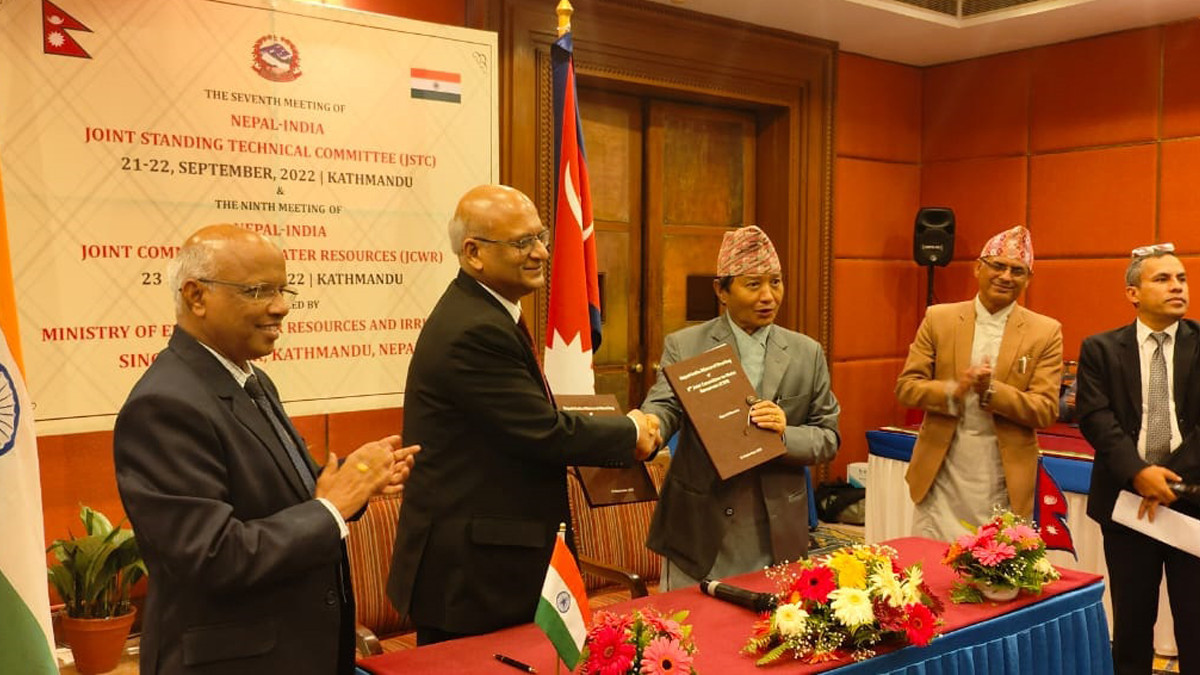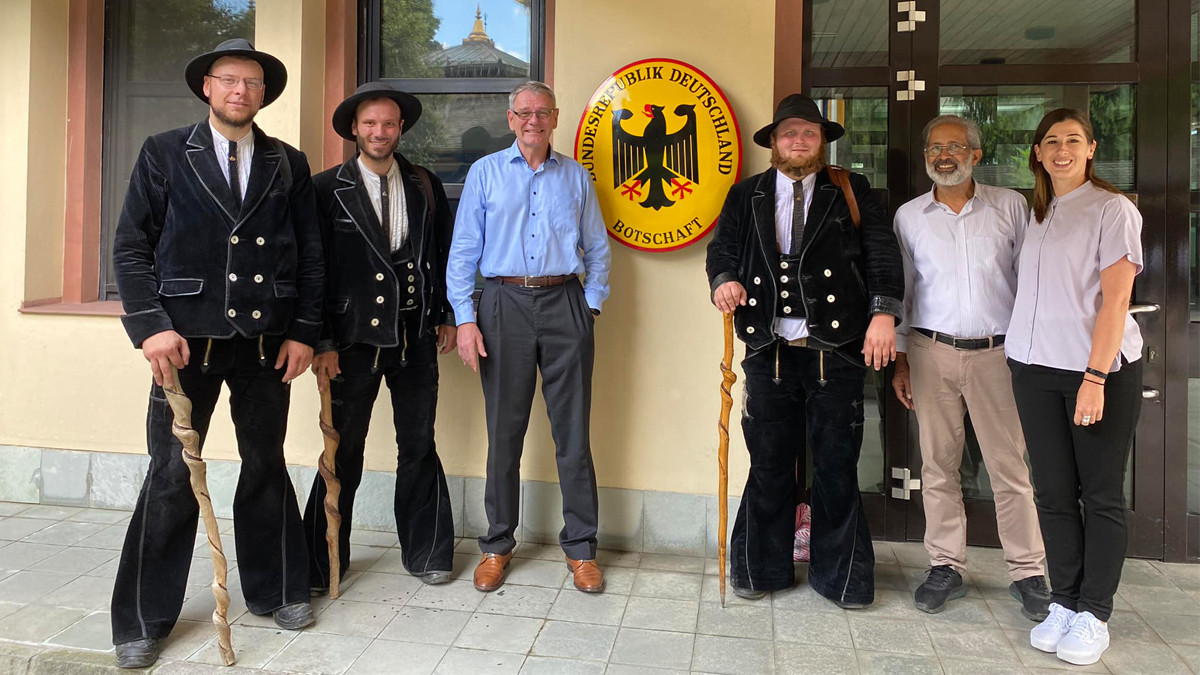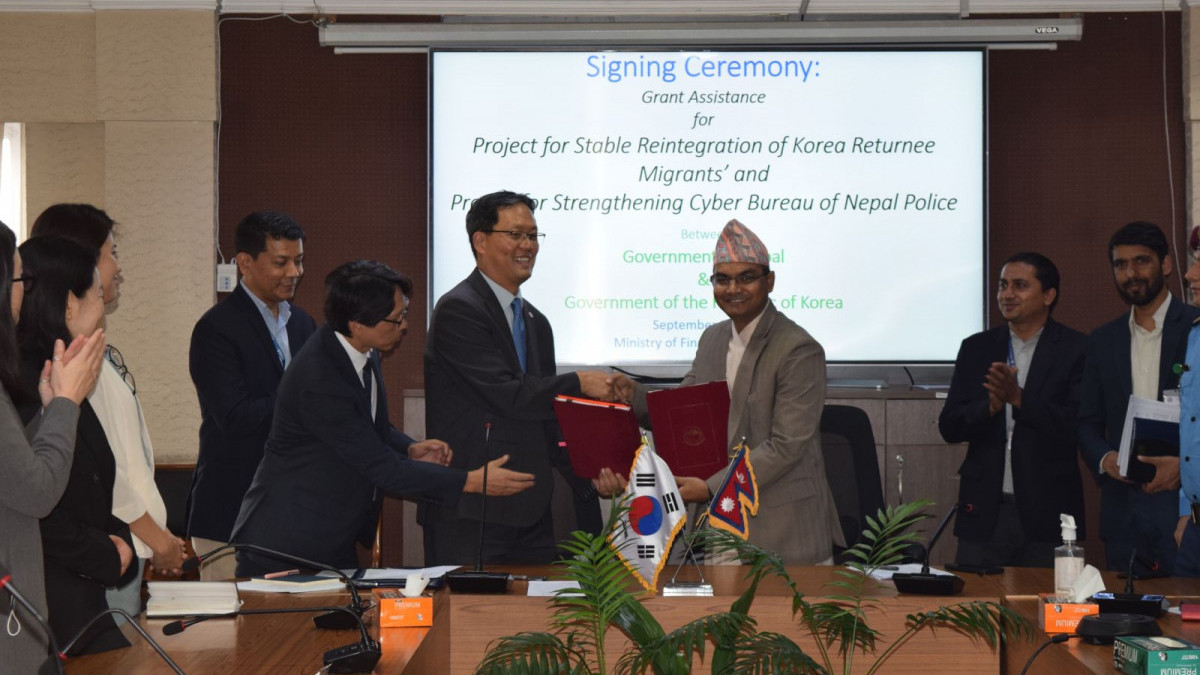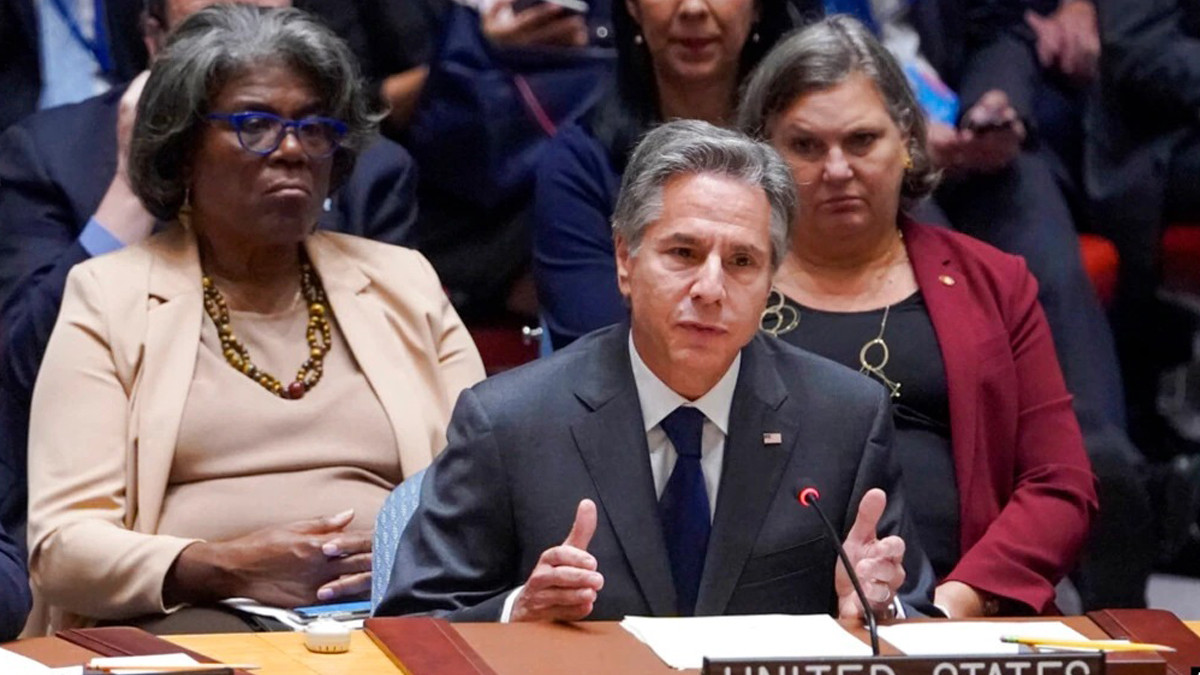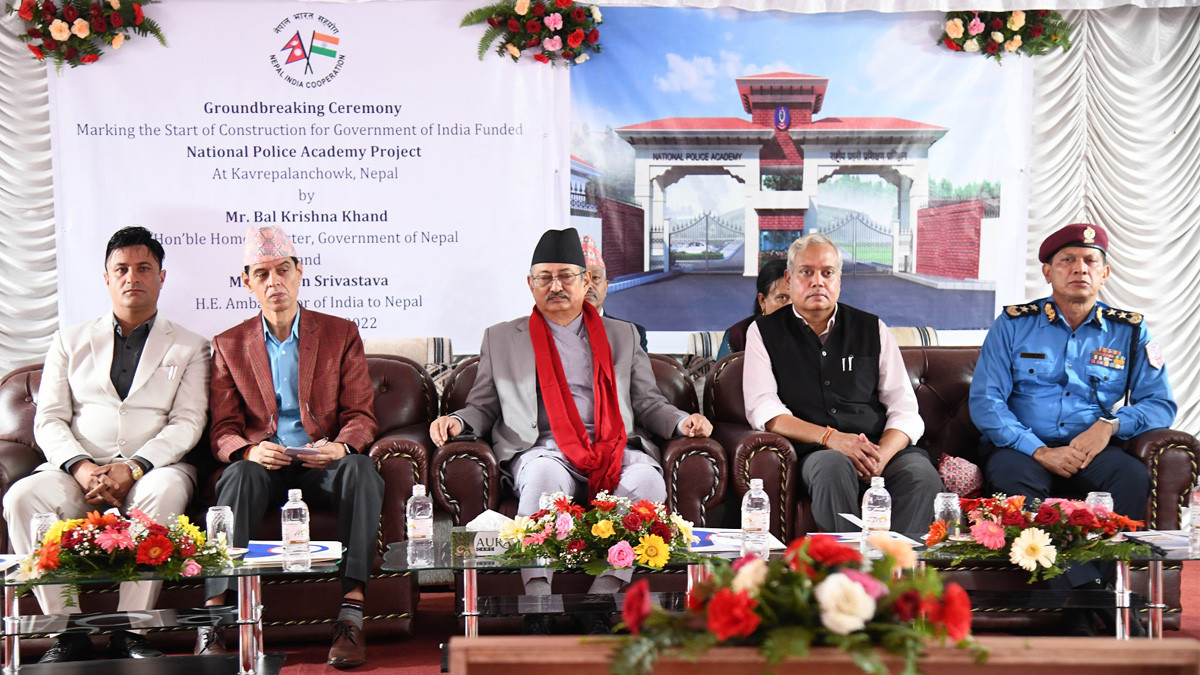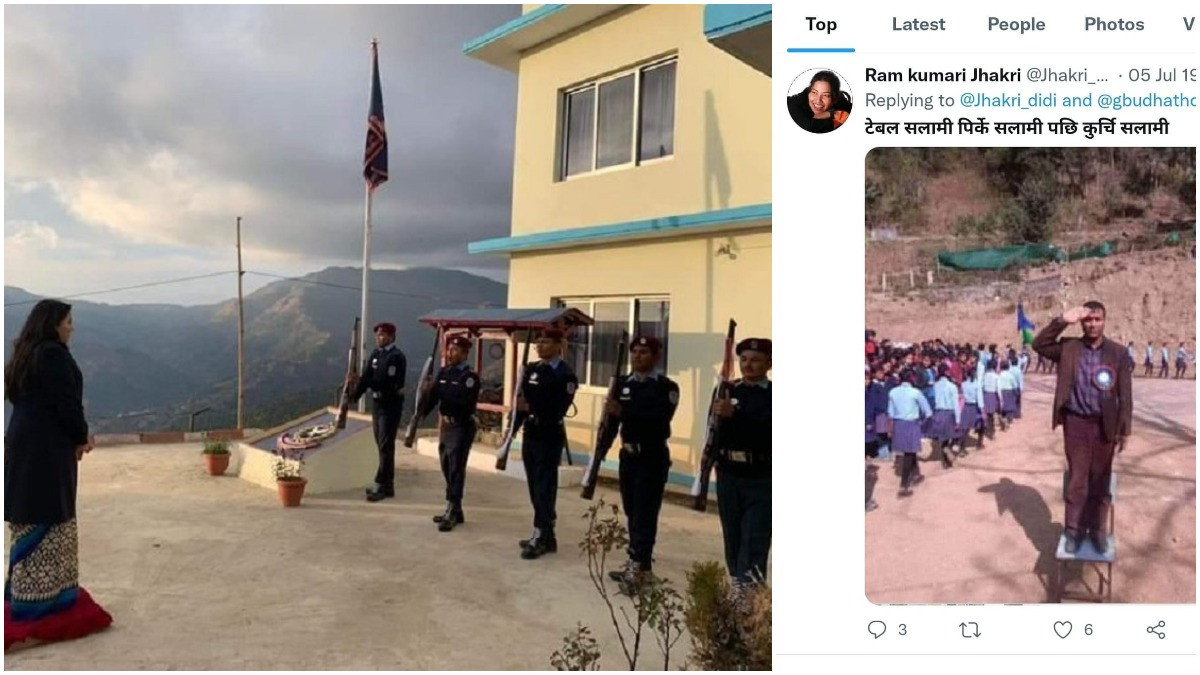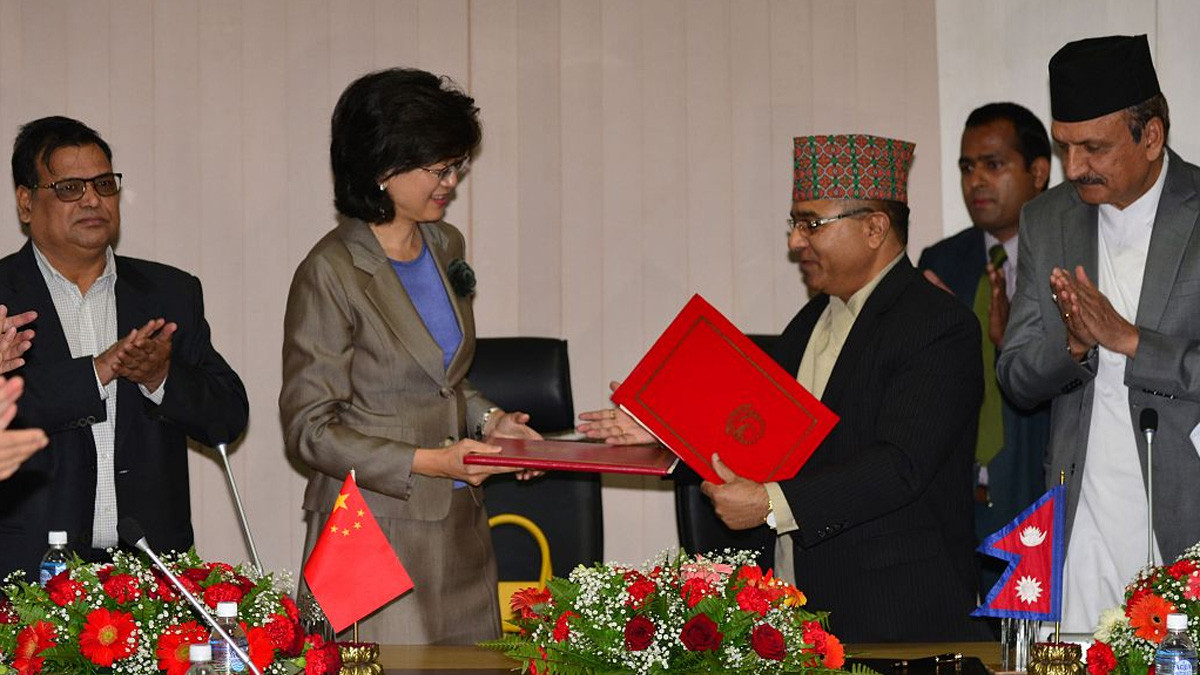 Then Foreign Secretary Shankar Das Bairagi (Now Chief Secretary) and Chinese Ambassador to Nepal Yu Hong along with Cabinet Minister at Signing Ceremony.File Photo-2017
Then Foreign Secretary Shankar Das Bairagi (Now Chief Secretary) and Chinese Ambassador to Nepal Yu Hong along with Cabinet Minister at Signing Ceremony.File Photo-2017
China has been found to be trying to impose its dominant economy, conditions and vested interests on Nepal through the Belt and Road Initiative (BRI).
Chairman of the National Unity Campaign Vinay Yadav had demanded to make the agreement public using the right to information. The details of the agreement provided to him by the government outline China's intentions and strategy.
The full text of the Memorandum of Understanding (MoU) signed between Nepal and China five years ago has revealed many issues hidden by the government and China.
In May 2017, the government of Nepal and China signed a Memorandum of Understanding (MoU) on China’s ambitious Belt and Road Initiatives (BRI).
However, neither Nepal nor China made the document public in all these five years.
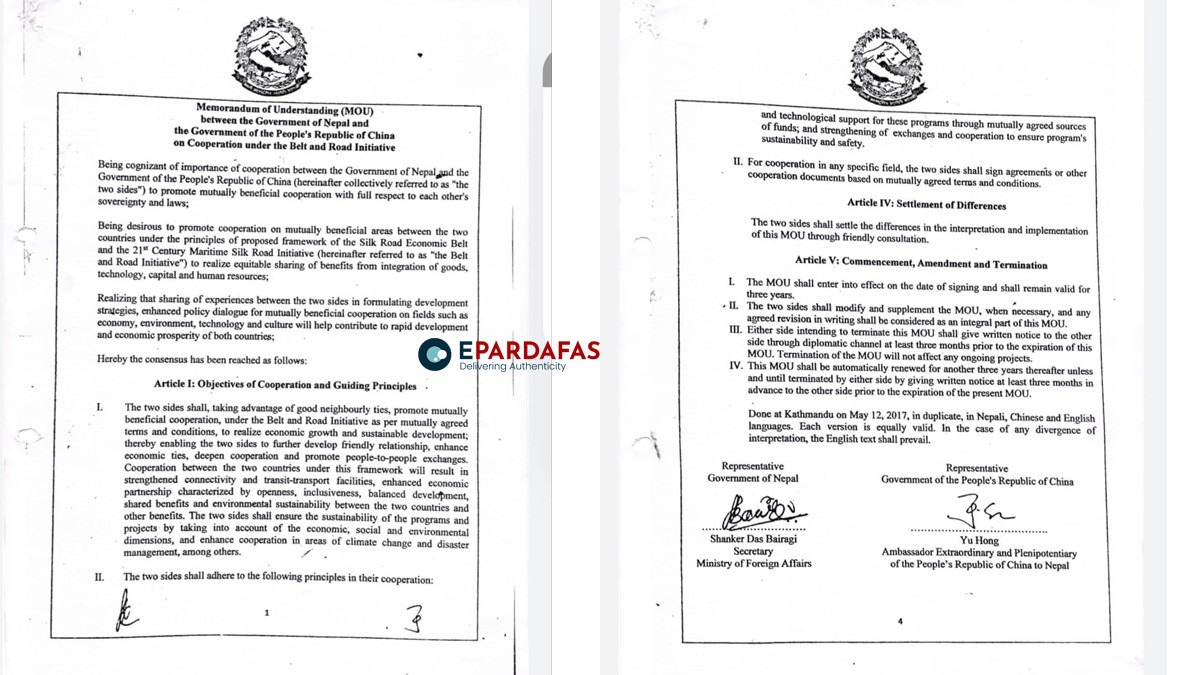
Article 3 of Chapter 2 of the Agreement deals with the expansion of trade relations.
The two sides will study the feasibility of a China-Nepal Free Trade Agreement by 2017 and, if possible, begin negotiations for an agreement to expand bilateral trade and markets.
The agreement was signed on behalf of Nepal by the then Foreign Secretary Shankar Das Bairagi (Now Chief Secretary) and Chinese Ambassador to Nepal Yu Hong.
At that time, the Prime Minister of Nepal was CPN-Maoist Central Committee Chairman Pushpa Kamal Dahal. The UCPN (M) had a coalition government with the Nepali Congress.
The signing of the agreement shows that China, the world's second largest economic power, is clearly trying to dominate Nepal, operate its currency in Nepal and sell its goods and services in Nepal at zero customs duty.
In 2017, BRI seems to be trying to monopolize the Nepalese market in the name of 'promoting cooperation in areas of mutual benefit'.
In Nepal, the demand for the agreement to be made public was widely raised, but it was kept secret. Due to the secrecy adopted in the agreement, serious questions were raised by various parties.
It is unknown at this time what he will do after leaving the post.
'Strengthen cooperation in connectivity by enhancing cooperation in transit transport, endowment system, transport network, transport sector network security and related infrastructure to expand joint study and promotion of cross-border physical projects including railways, roads, civil aviation, power transmission lines, information and communication,' there is an article.
The agreement reached in 2017 has been automatically renewed without completing the first three years. But so far not a single project has been implemented.
Provision has been made for the parties to terminate the agreement by giving three months' notice.
Provision has been made for both the governments to renew the agreement by giving three months notice. Similarly, it is mentioned in the agreement that both the parties can modify or change the agreement as per the need.
Various organizations and people working in the field of transparency have raised questions about the confidentiality of the agreement. They say the first link of accountability is transparency.
Full text of the agreement

 Deepak Kharel
Deepak Kharel
